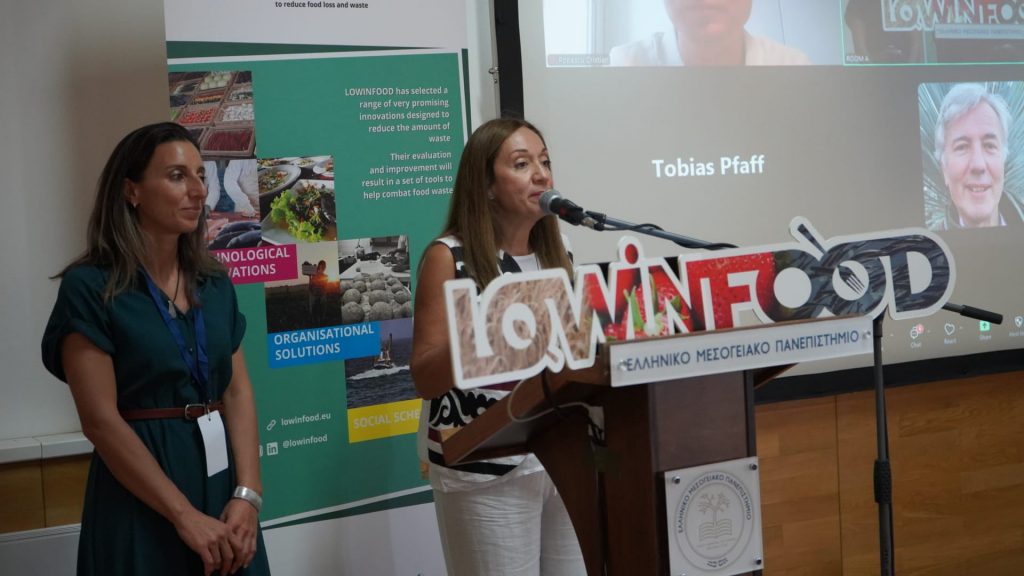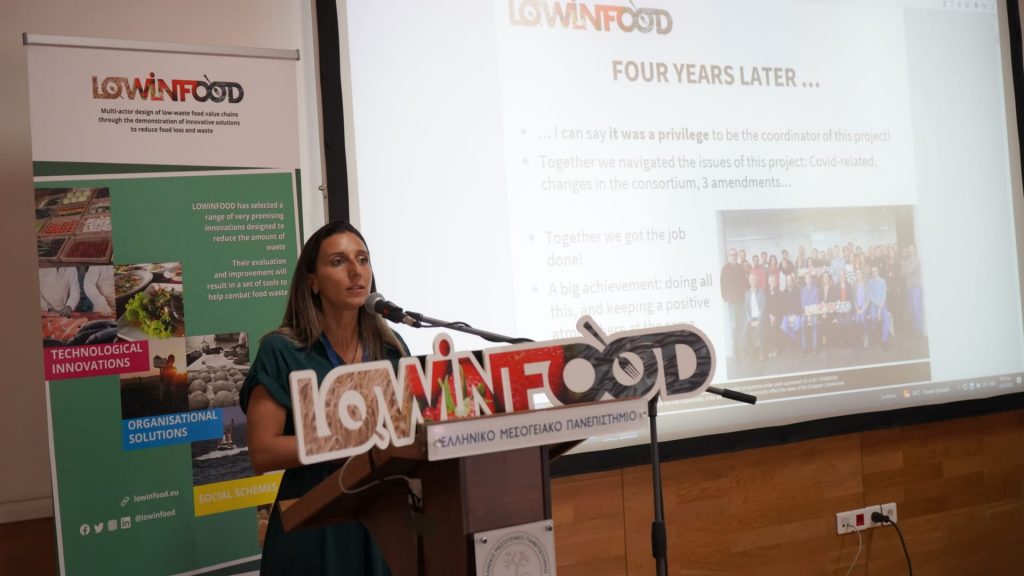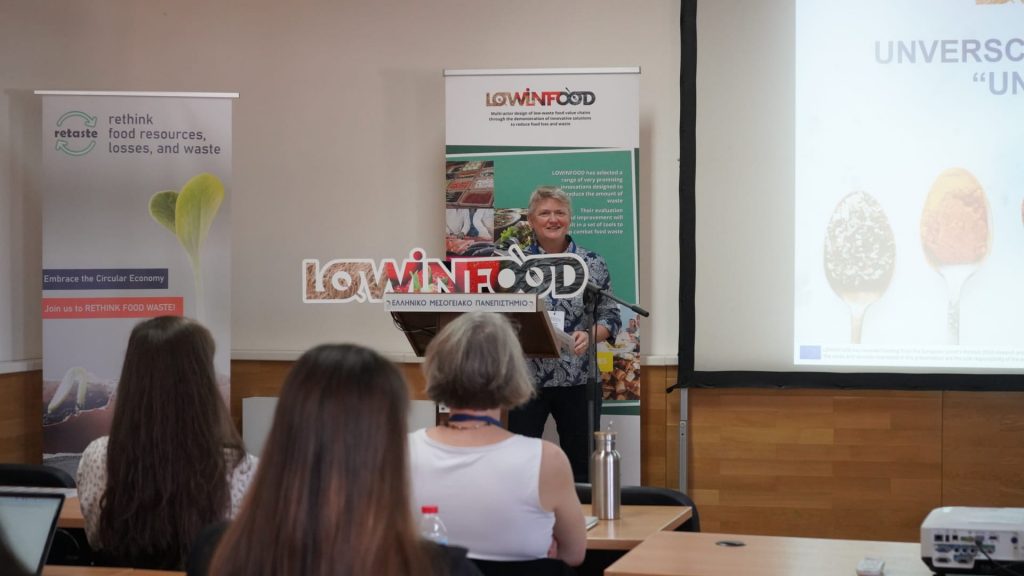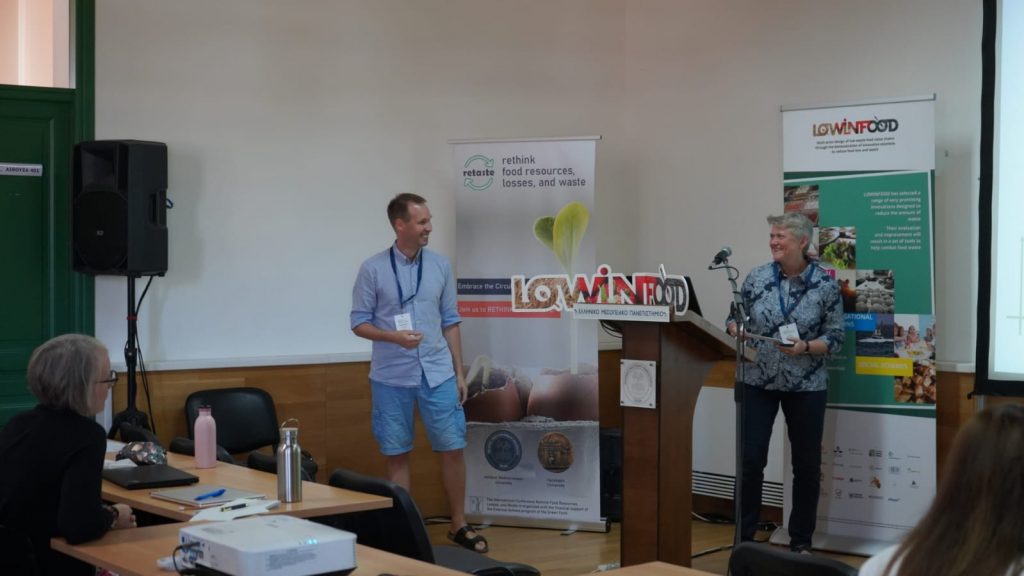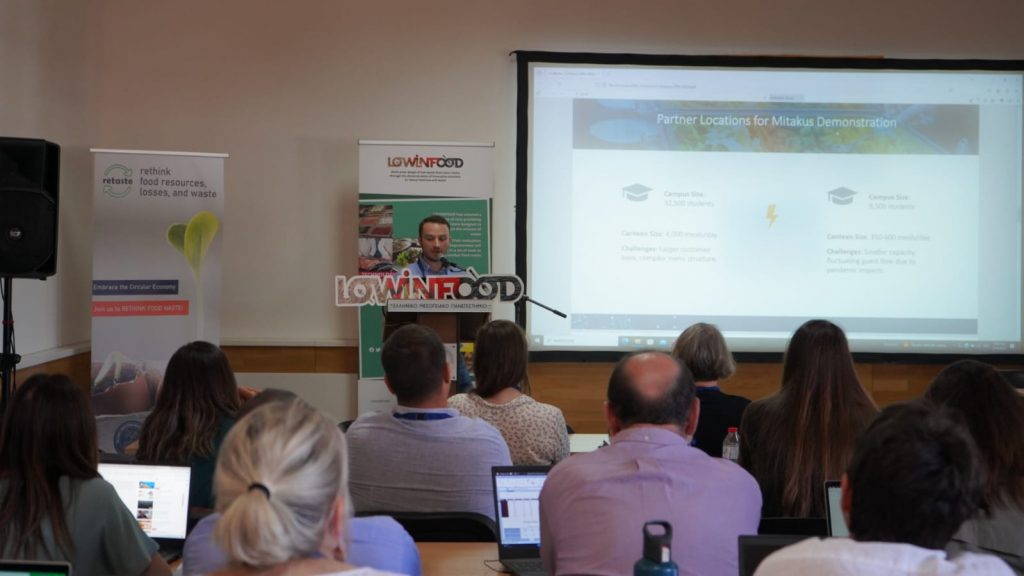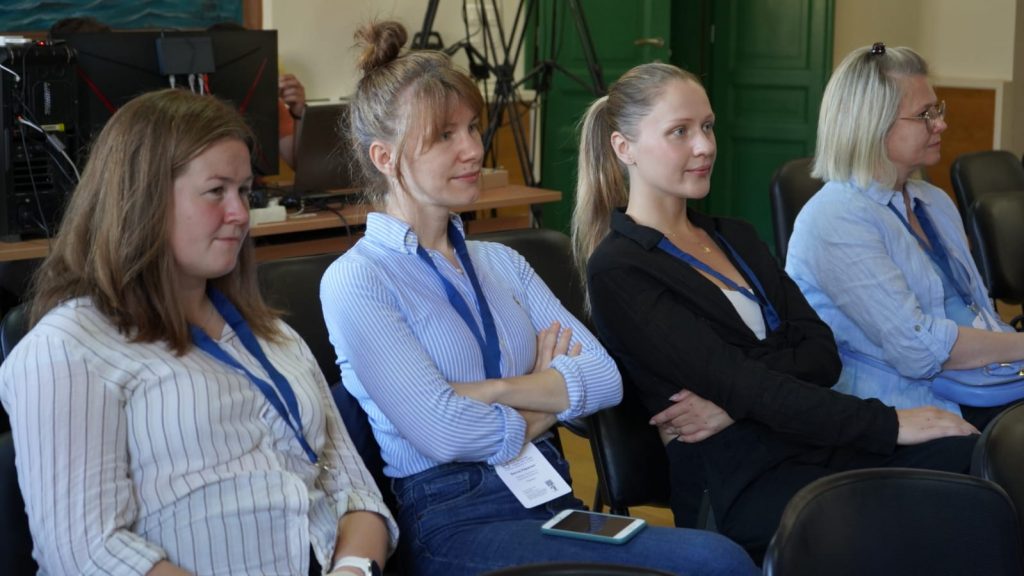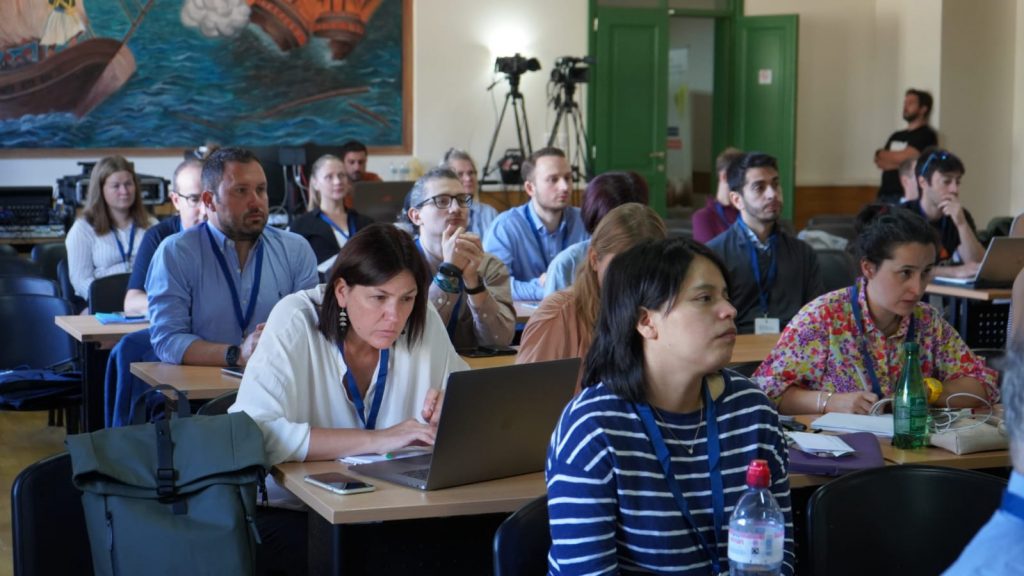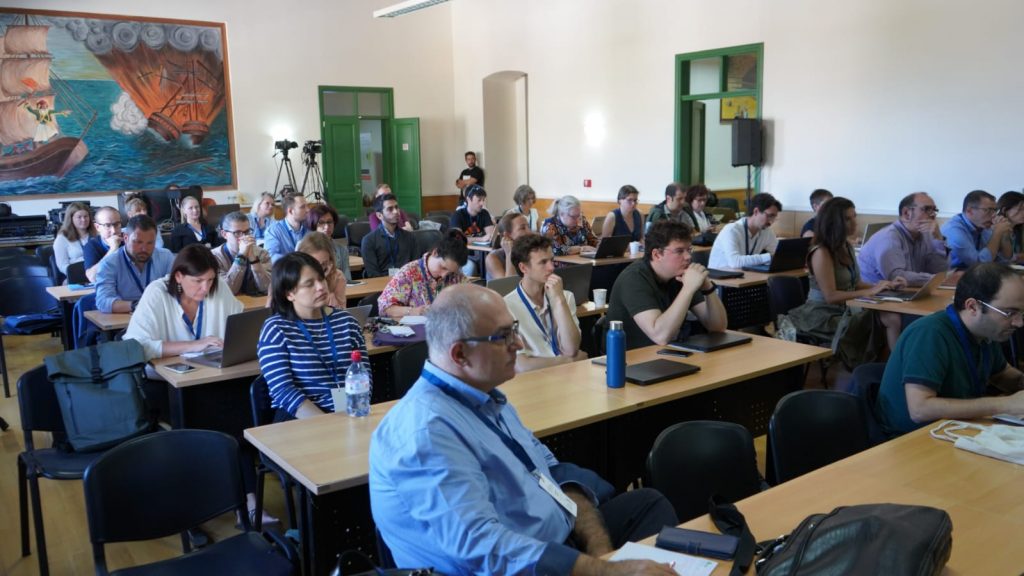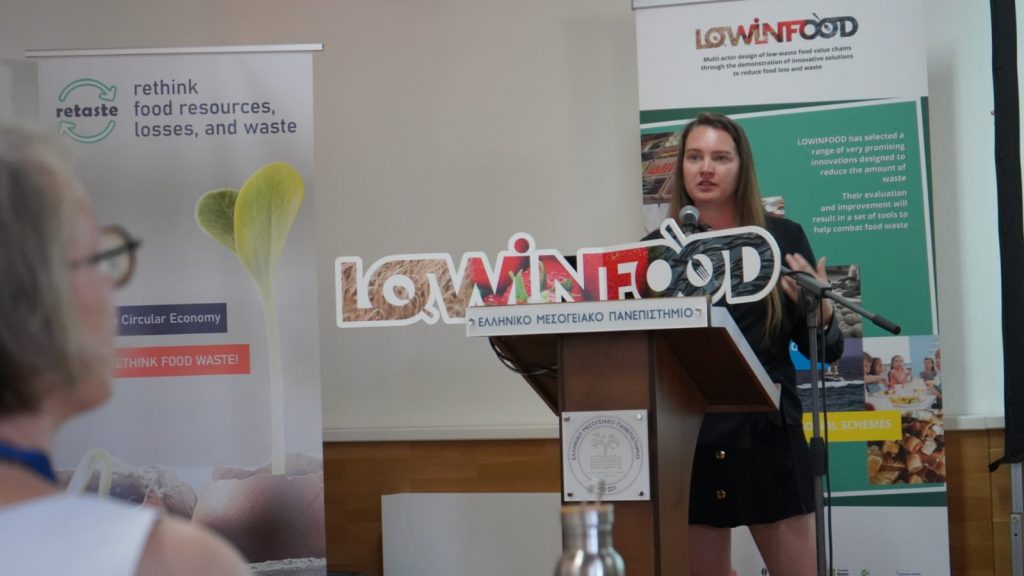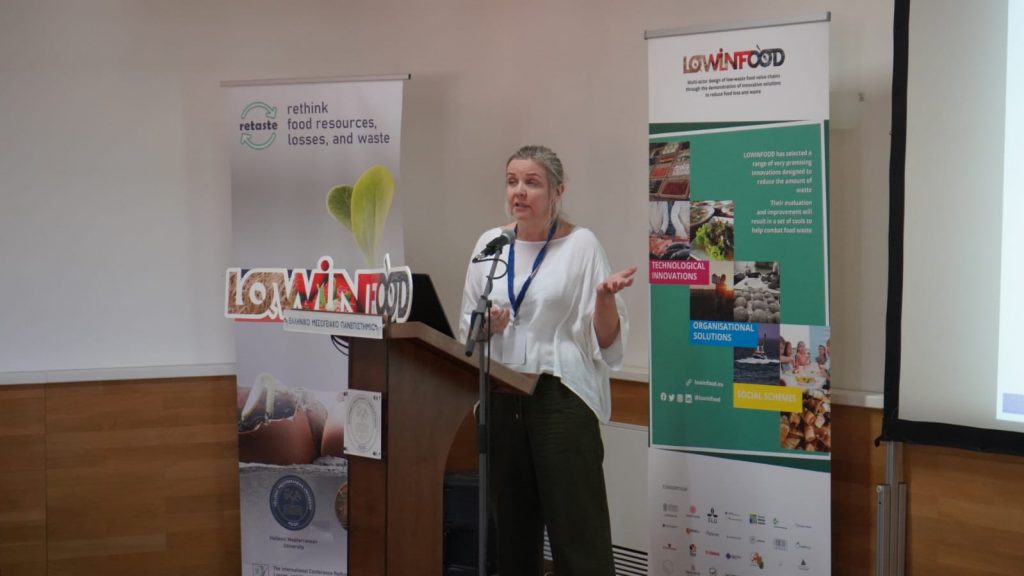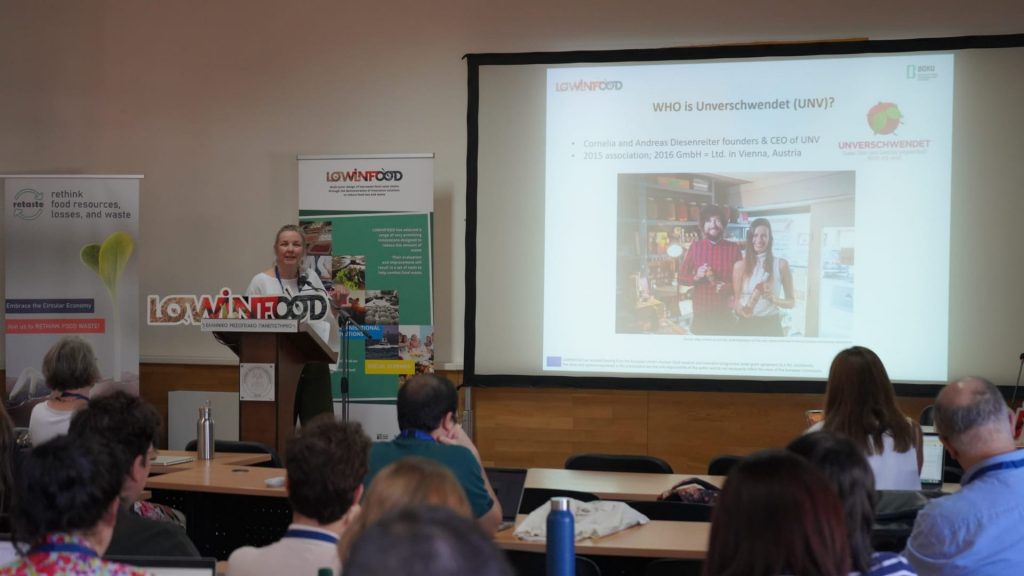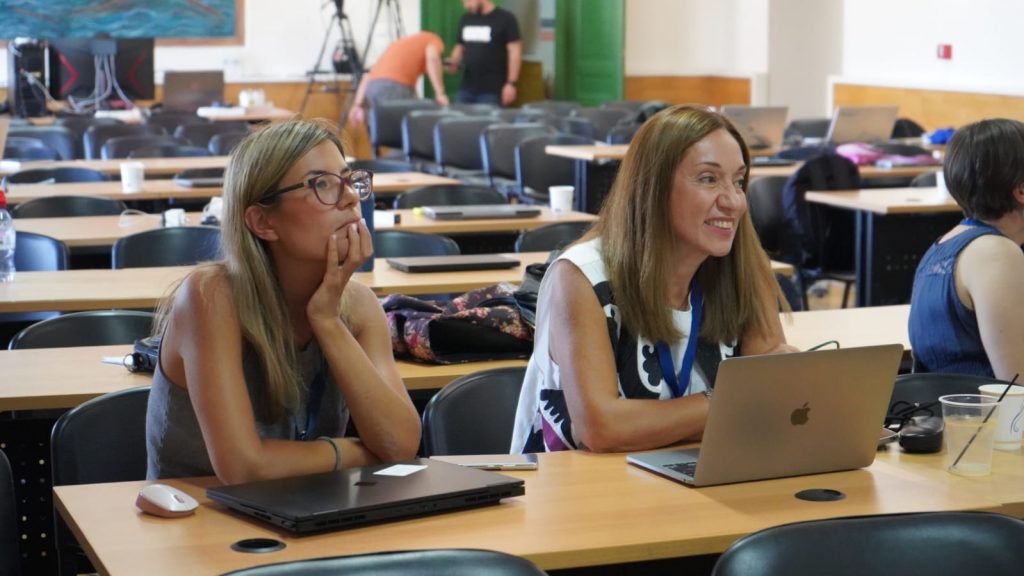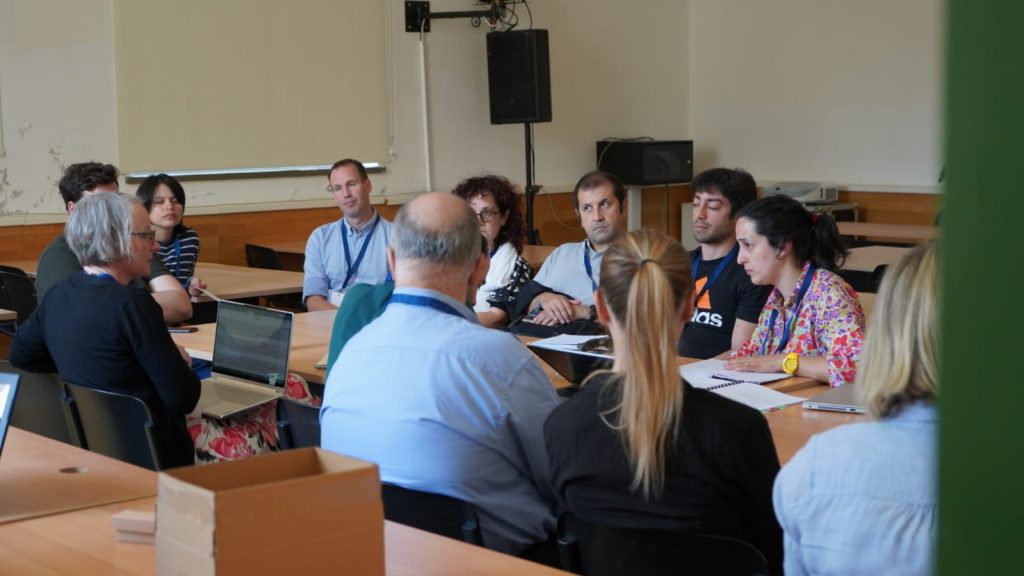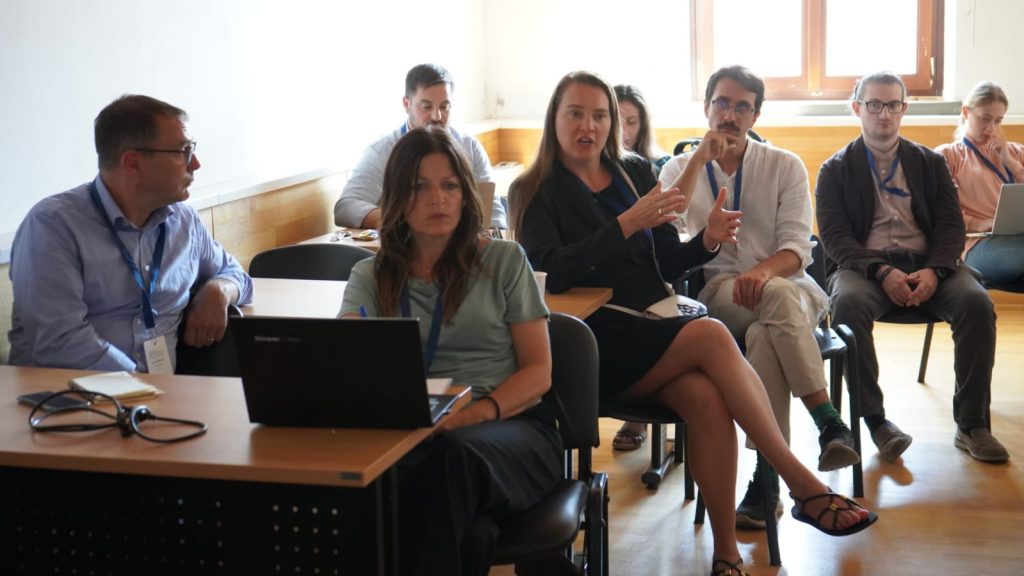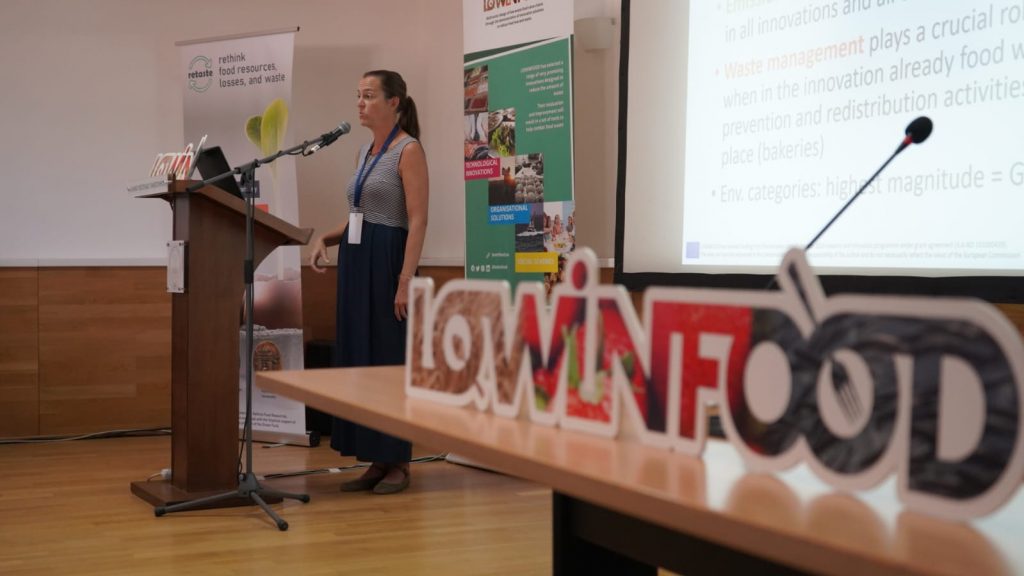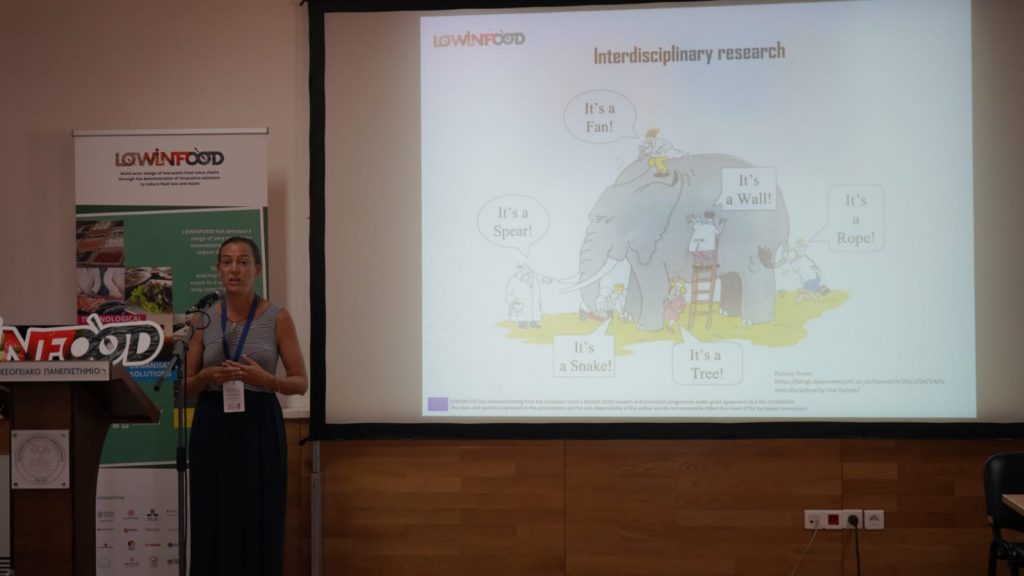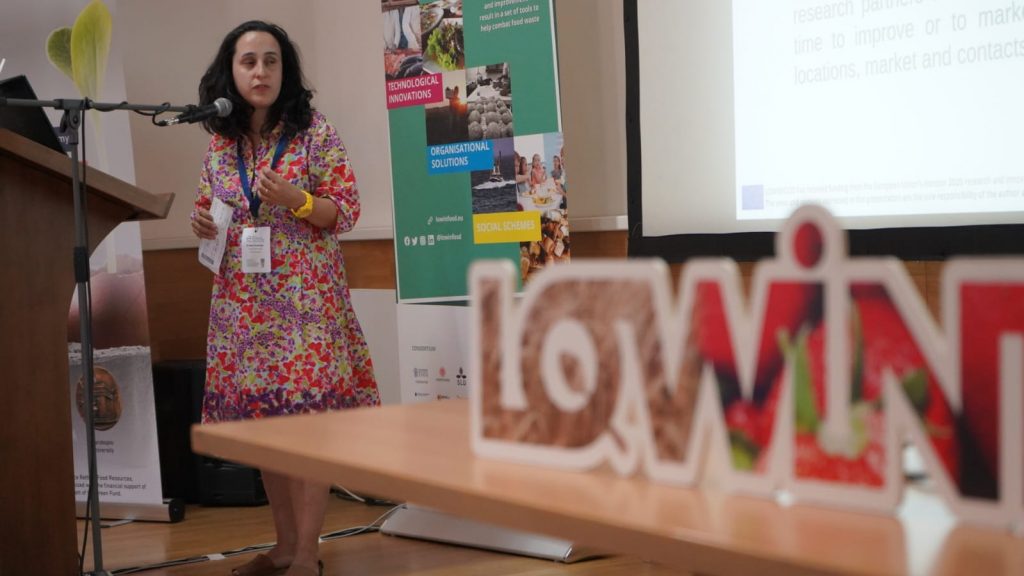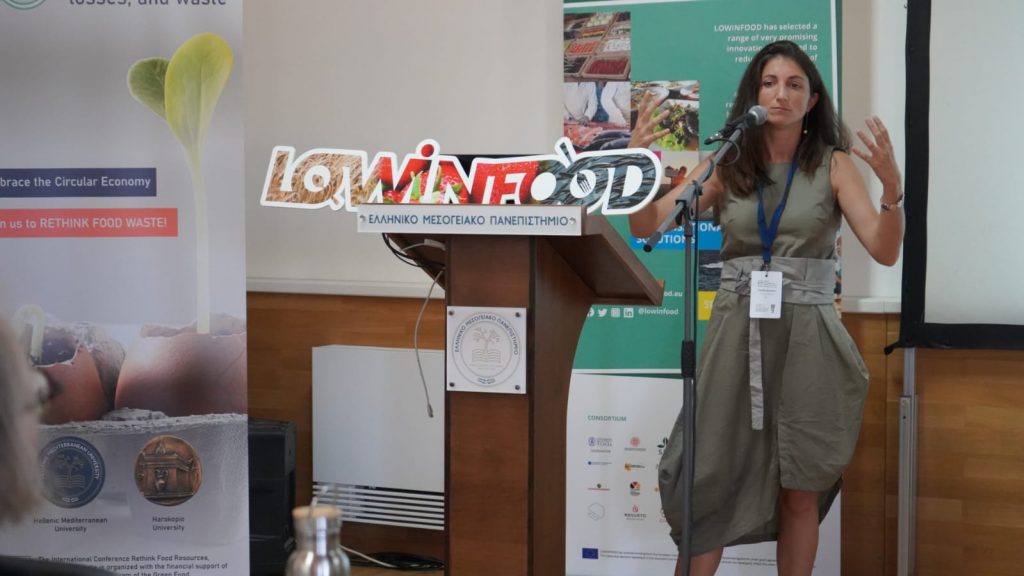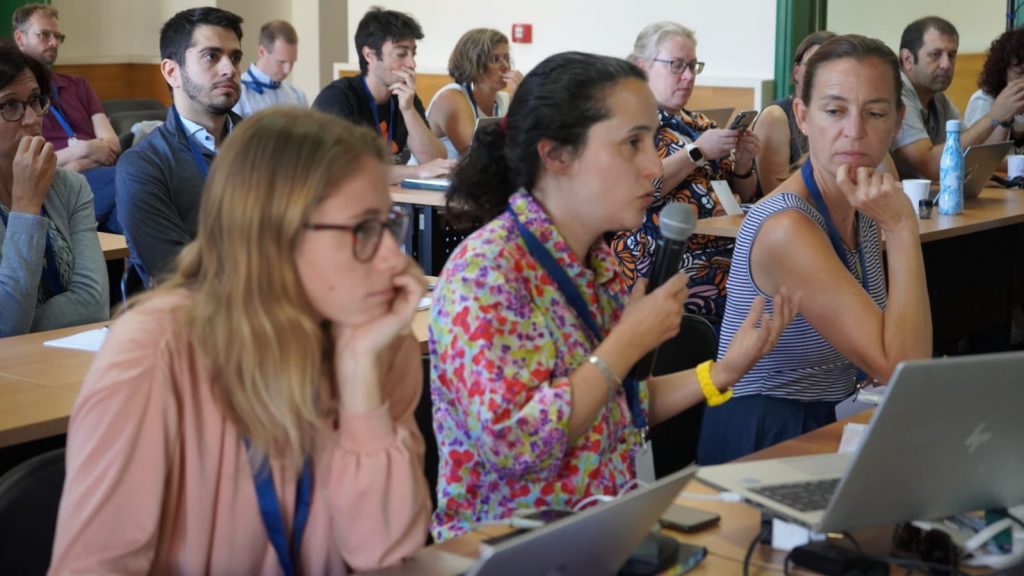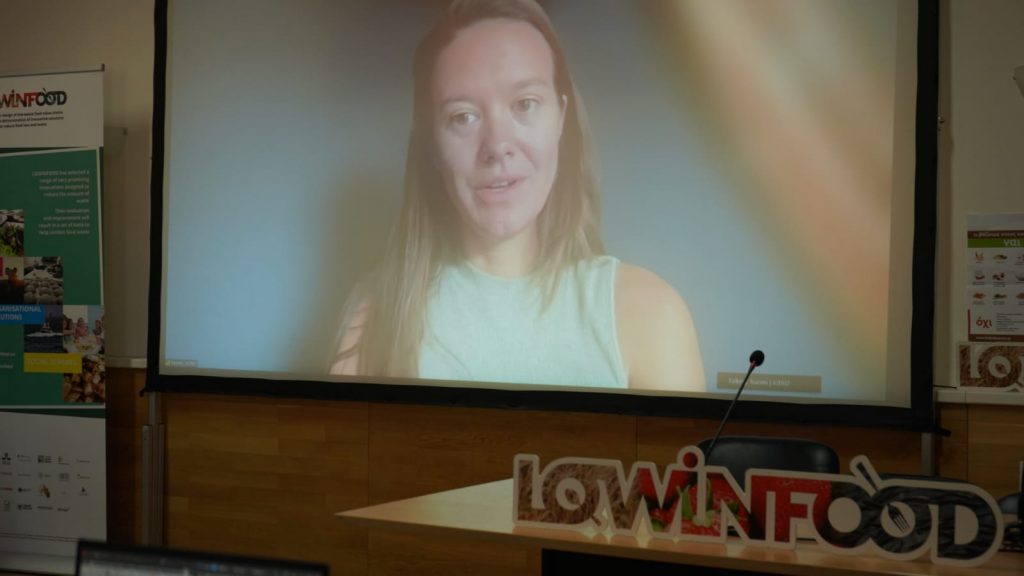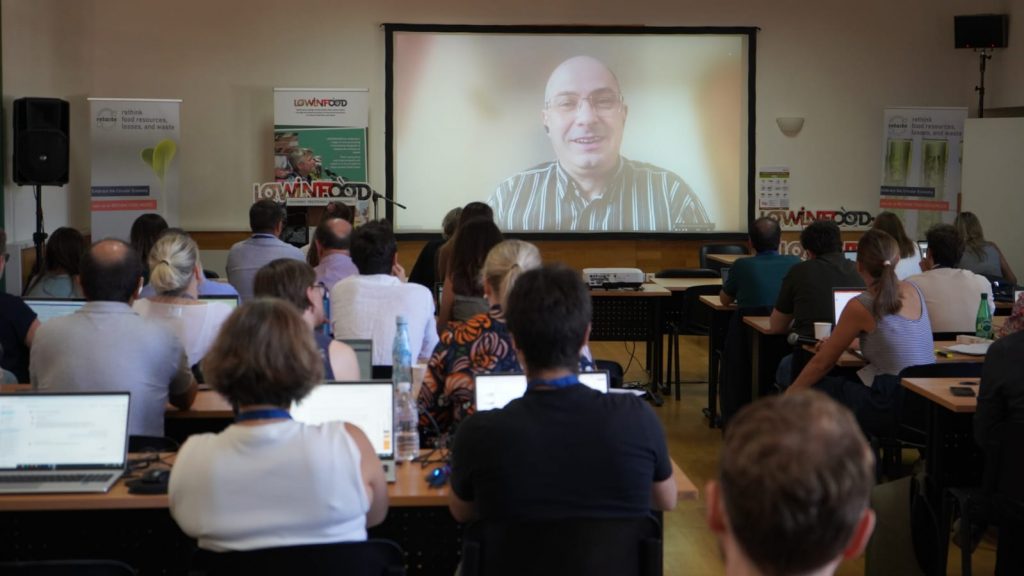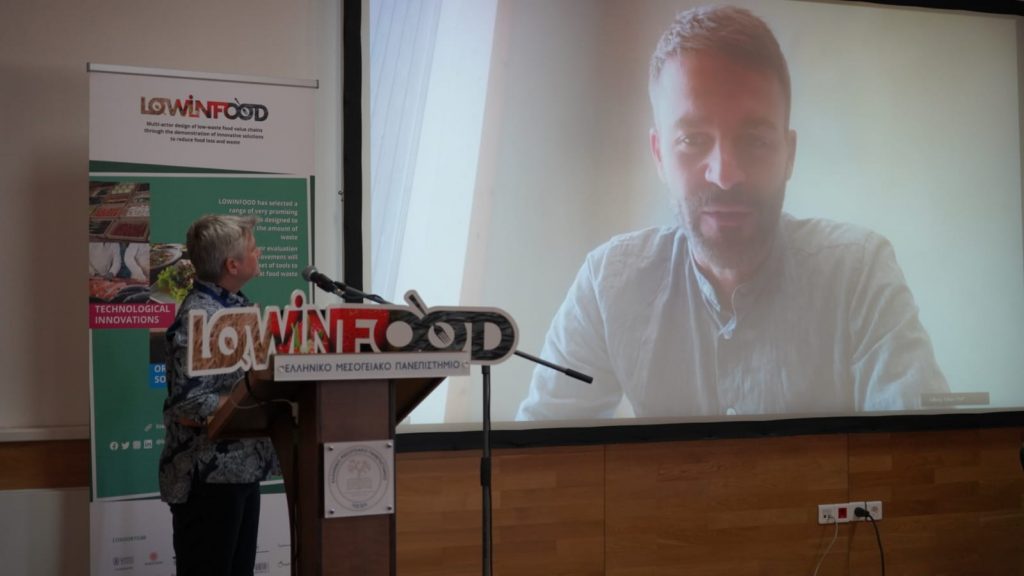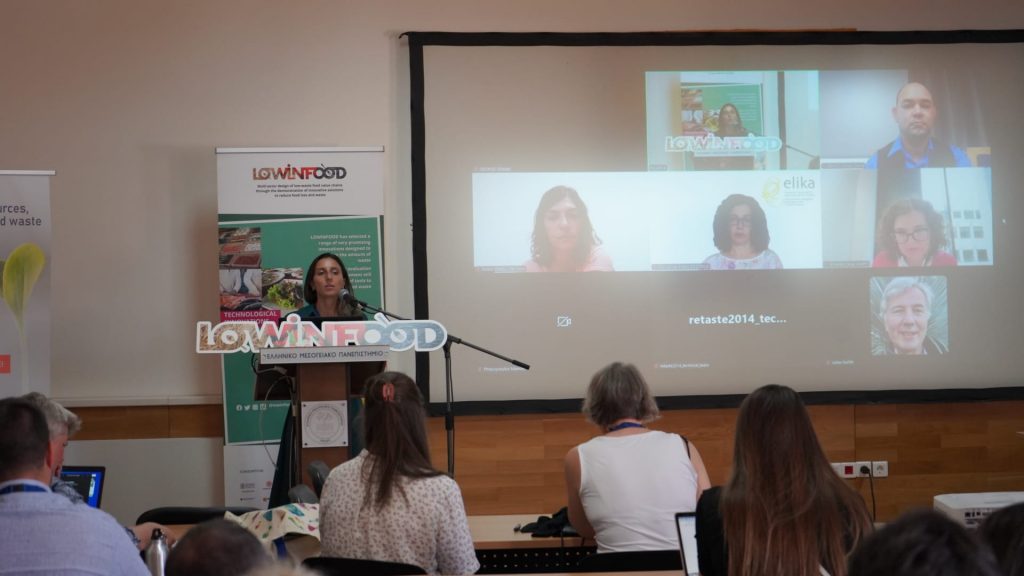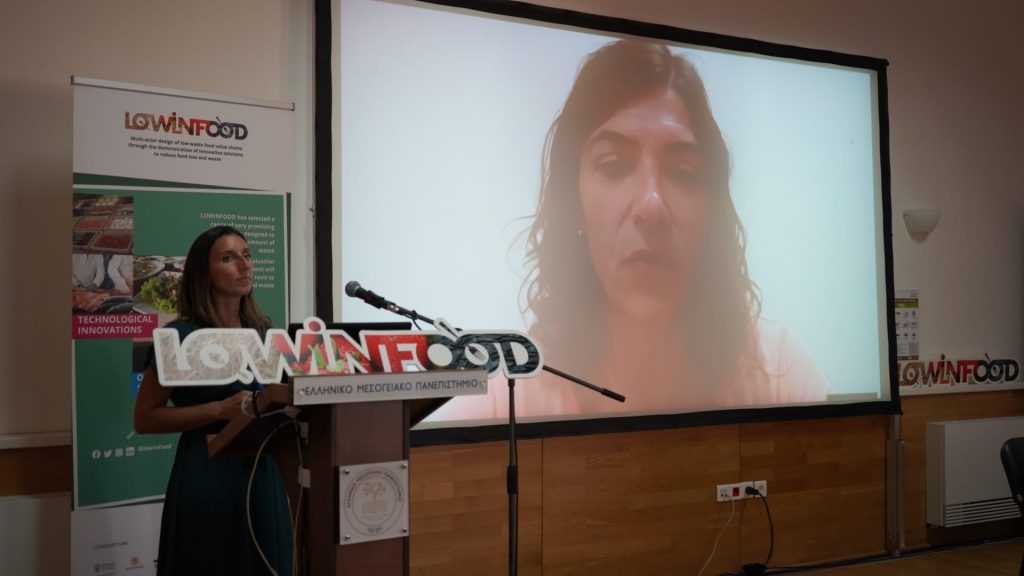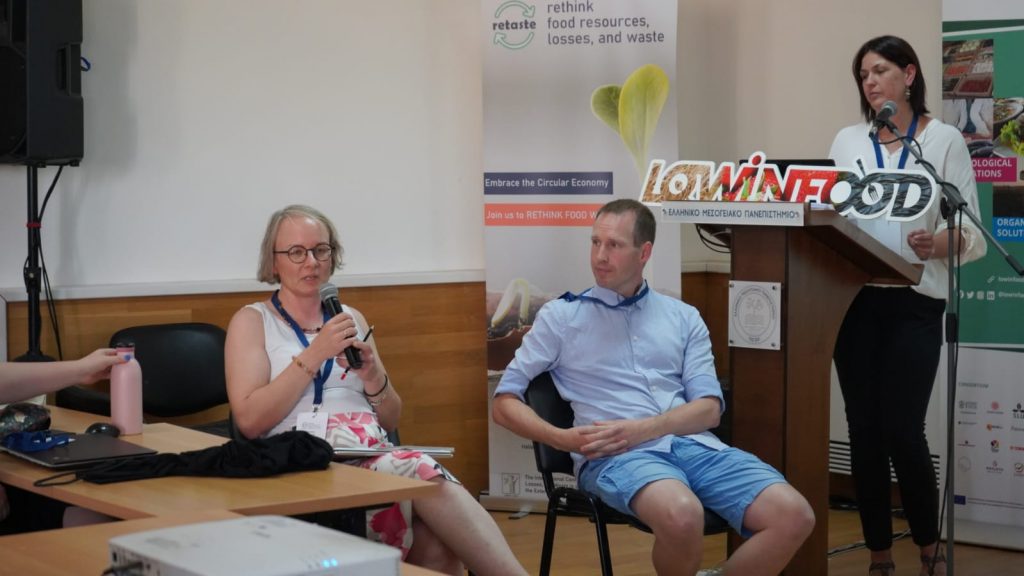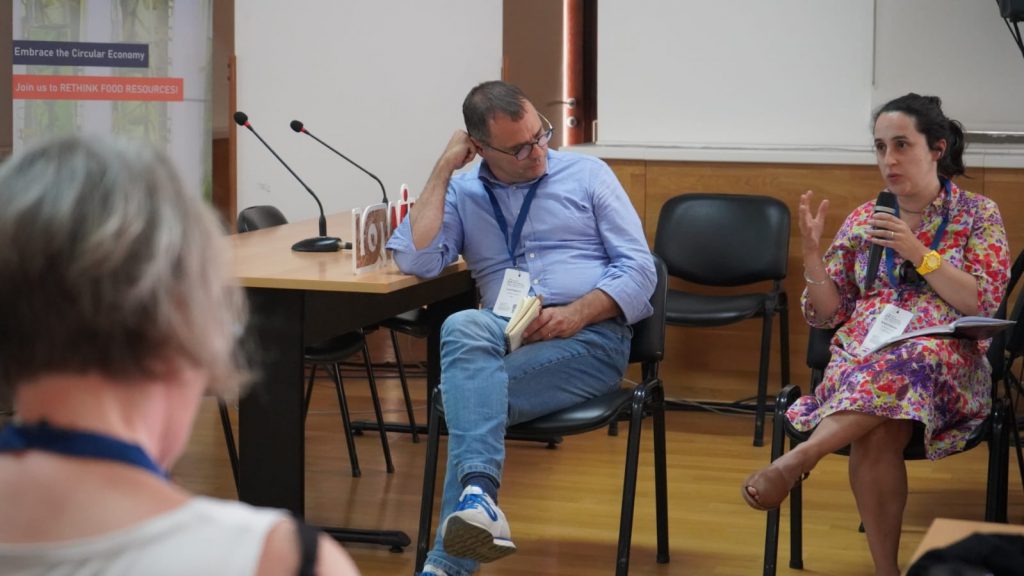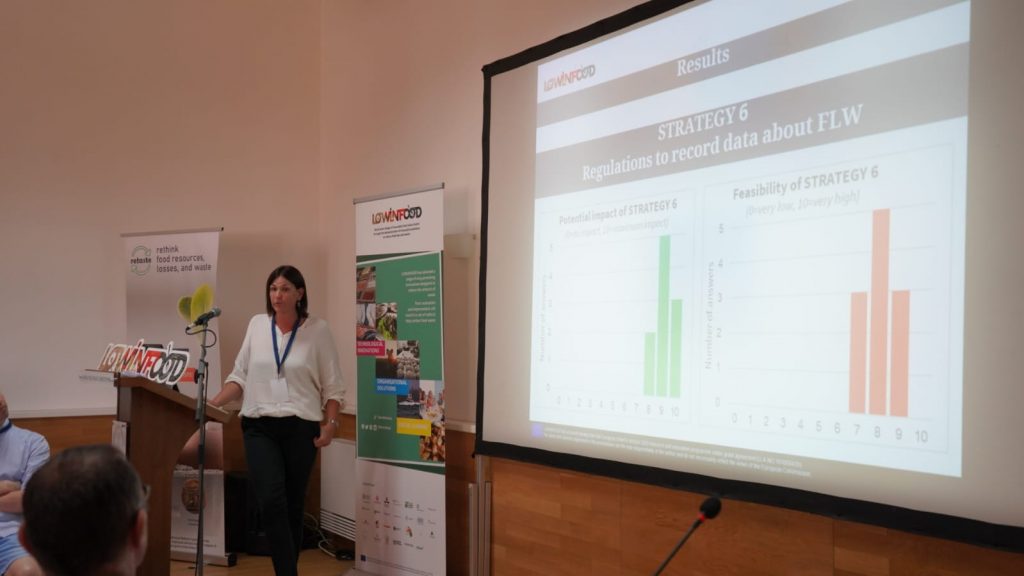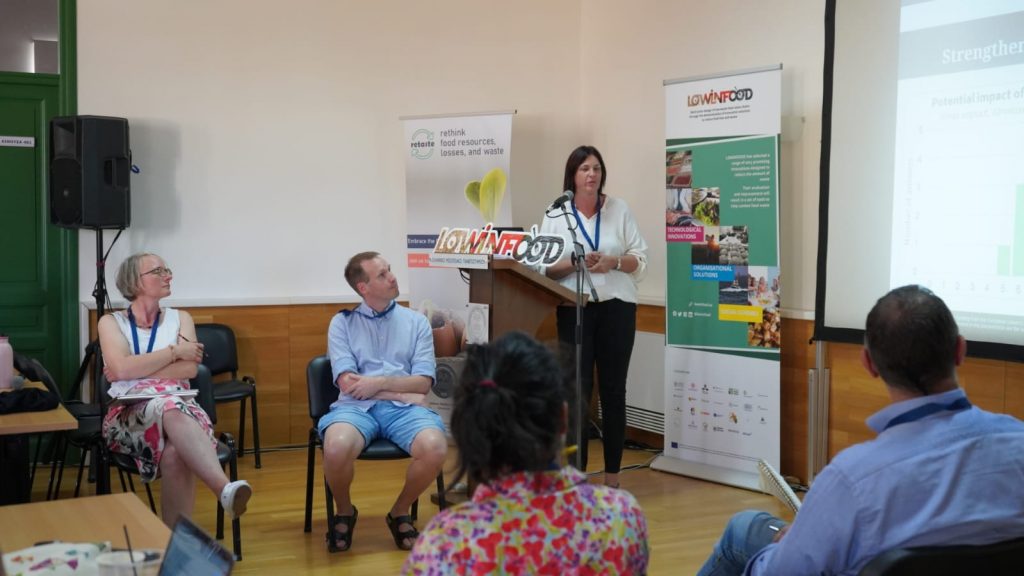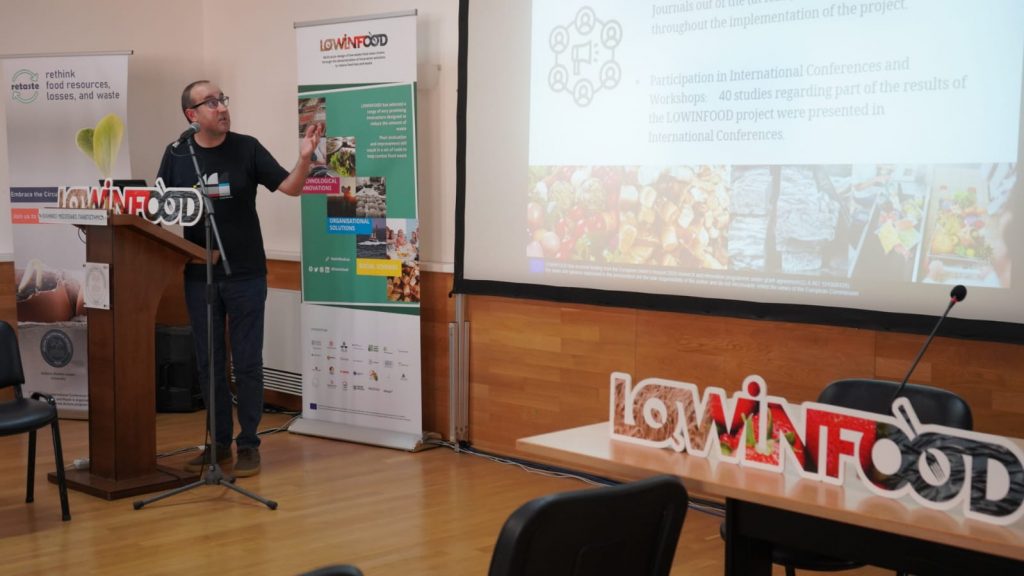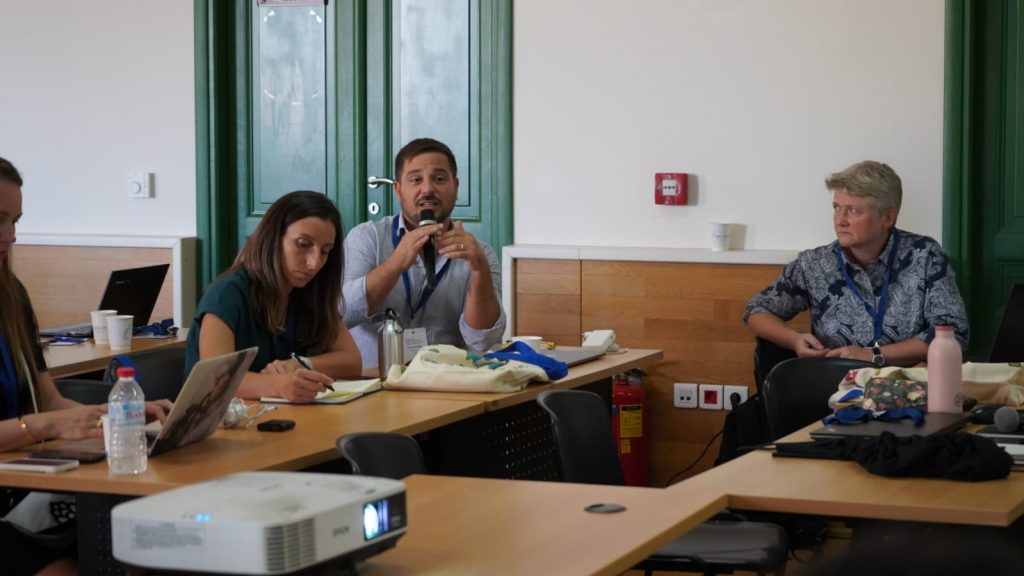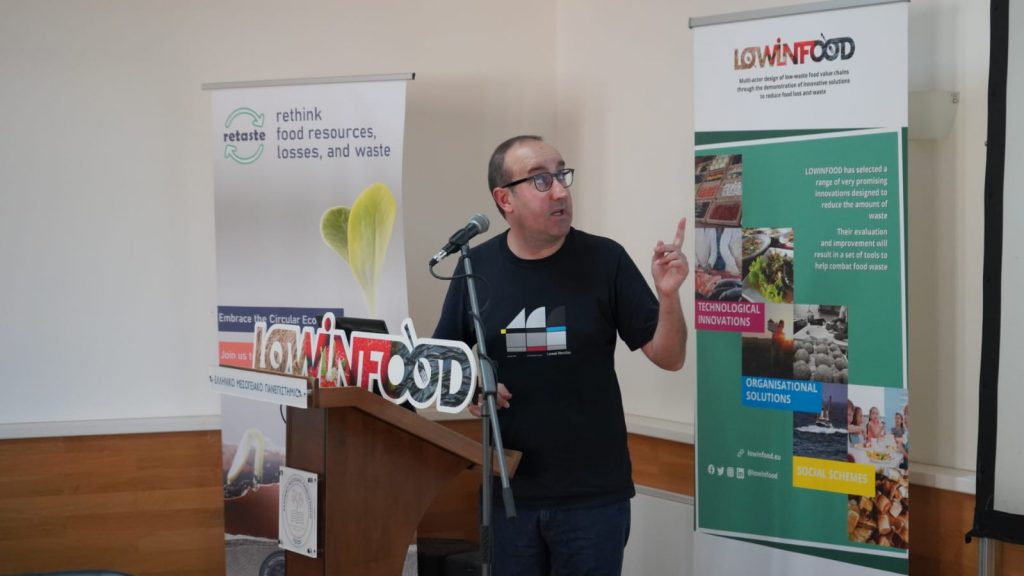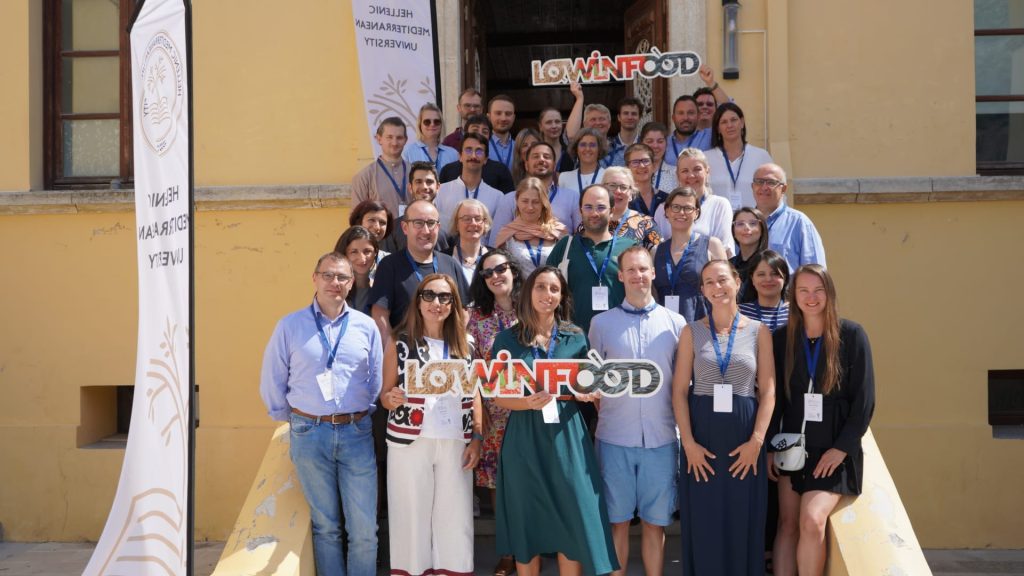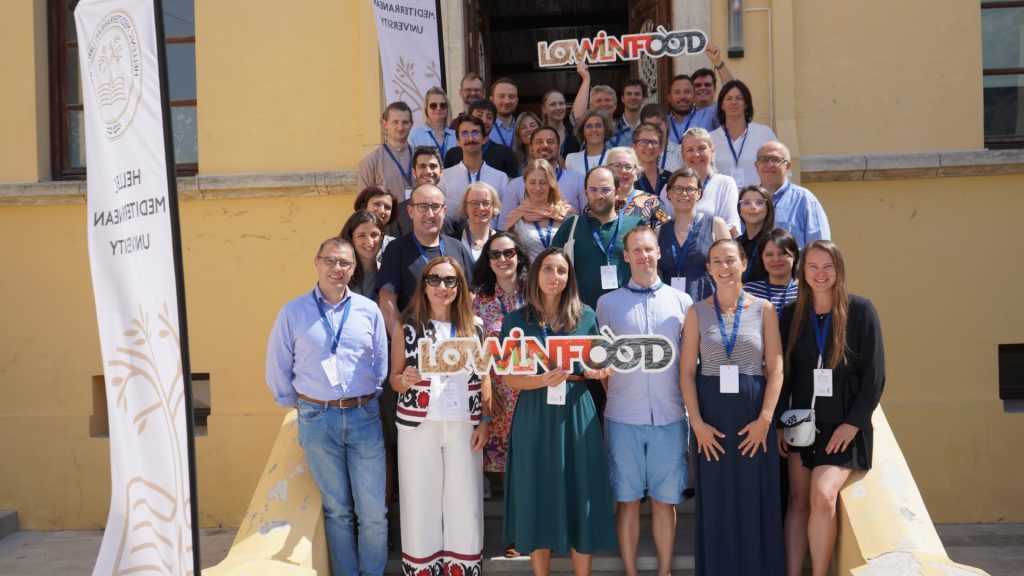
LOWINFOOD meets for the last time in Archanes, Crete
On 24 September 2024, LOWINFOOD celebrated its final project meeting in Archanes, Crete, hosted by consortium partners at Harokopio University. During the day, a general overview of the results and impacts achieved was presented to the participants. The most relevant facts are summarised below.
The partners responsible for market-oriented innovation had the opportunity to share the main results, progress and lessons learned during the demonstration phase, namely Unverschwendet, Leroma, FoodTracks, Kitro, Mitakus, Matomatic and Cozzo. This pitch session was moderated by Felicitas Schneider, an external advisor who has been closely
The innovations were evaluated in three dimensions: their effectiveness in reducing food waste, their improvement in environmental impact and their socio-economic impact. A workshop was held to discuss the results and conclusions in these three areas with the innovation partners, led by Silvia Scherhaufer, leader of the environmental impact assessment, Claudia Giordano, leader of the efficacy aspect, and Nazli Koseoglou, leader of the socio-economic impact assessment. As well as highlighting the positive results achieved in the project in terms of the effectiveness of the innovations, Claudia also went through cases where performance was not as expected. She stressed that this is normal and listed some factors that can influence the effectiveness of a given innovation, which can also vary if the evaluation is carried out under different conditions. As for the socio-economic aspect, although mixed economic impacts were reported, Nazli highlighted an “additional” benefit reported by innovation partners from LOWINFOOD: the ability to fund additional staff to improve or market the innovation or to test it in additional locations. Silvia, for her part, stressed that the biggest environmental impact was related to emissions from food production and the crucial role of waste management.
The final meeting also included a round table with the so-called sister project, a network that has worked closely during the whole duration of the five projects involved, as they met regularly to share and discuss experiences and ideas on several common themes addressed in the different projects. On this occasion, they looked back on this successful experience and shared the most impactful aspects and the most relevant events they organised and participated in as part of this collaboration.
Finally, a round table on the potential of innovations for policy impact was held with partners leading work in each of the value chains addressed in LOWINFOOD: fruit and vegetables, bakery, fish and food service and home consumption. They discussed the most appropriate strategies to support the diffusion of innovations in each value chain from the policy level, which gave rise to very interesting debates among the partners.
